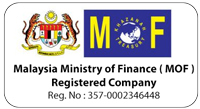A creative website design might earn praise, but a well-built website brings in clicks, conversions, and repeat visitors.
In a crowded online space, visitors prefer websites that are functional, interesting, intuitive, and memorable.
So, how do you stand out from the digital noise? It starts with design choices that focus on users and gently guide them to take action.
Let’s explore the key secrets of creative website design that help you attract more traffic and convert casual visitors into active users.
Design With Purpose: Know Your Goals
Clear communication is the foundation of creative design. Before delving into aesthetics, describe your website’s primary goals:
- Is it for showcasing your portfolio?
- Selling products?
- How do you generate leads?
- Share your insights?
Each goal influences the layout, content structure, and call-to-action (CTA) placement.
For instance, a service-based company’s homepage should showcase a clear value proposition. It needs simple navigation to service pages and a contact button that stays in view.
Pro Tip: Avoid clutter. Every element should have a purpose; otherwise, it’s just noise.
Use Visual Hierarchy to Guide Users
Your visitors have limited attention spans; utilize visual hierarchy to guide them instinctively.
Here are some visual hierarchy tricks:
- Bigger headlines to attract attention.
- Contrasting colors for CTAs.
- Plenty of white space to reduce overwhelm.
- Imagery that is consistent with the message.
When consumers can quickly locate what they want, they’re more likely to stay, explore, and buy.
Incorporate Storytelling Through Design
People remember stories rather than features. Use storytelling elements to forge emotional connections.
Keep your brand voice steady, add vivid imagery, and ensure the page flows well.
For instance,
- A homepage could begin with a clear headline addressing a user’s problem.
- A visual journey demonstrating how your product or service solves it.
- Including testimonials or a behind-the-scenes brand video to enhance the story’s authenticity.
Optimize for Speed and Mobile
A creatively designed website must also be technically sound.
Google claims that 53% of mobile users abandon websites that take more than 3 seconds to load.
Even the most attractive websites lose traffic when they take too long to load.
Key tips:
- Use compressed images.
- Select performance-optimized themes or frameworks.
- Keep the code neat.
- Minify CSS, HTML, and JavaScript.
- Implement lazy loading on media-heavy pages.
Also, make sure your design is mobile responsive. More than 60% of traffic currently originates from mobile devices. A mobile-first design is no longer an option—it’s required.

Create Interactive and Engaging Experiences
Modern users don’t just want to read or scroll; they want to interact.
Add interactive elements, such as:
- Hover effects
- Sliders or carousels for testimonials and portfolios
- Animated icons and illustrations
- Microinteractions with buttons or forms.
- Gamified features, such as quizzes or progress bars.
Creative elements enhance dwell time and cut bounce rates. This signals to search engines that your site is valuable, which can boost your rankings.
Design for SEO Without Sacrificing Style
You may have a beautiful website while still being SEO-friendly—there is no trade-off.
Combine creativity and SEO by:
- Structure your material with H1s, H2s, and H3s.
- Use keyword-rich titles and meta descriptions.
- Adding alternative text to images
- Developing internal links to assist users and search engines.
- Designing a clear, crawlable site architecture.
When SEO is incorporated during the design process rather than afterward, you will receive more organic traffic with each page launch.

Use Strategic CTAs That Pop
Creative websites understand how to compel action without yelling.
The CTAs should be:
- Clear and benefit-driven (“Start My Free Trial”, “Book My Consultation”, “Get a Quote”)
- Using contrasting colors to make them stand out
- Repeated at crucial places such as headers, middle content, and footers.
- Backed by trust signals, such as assurances or reviews
A/B test your CTA colors, language, and positioning to determine what works best over time.
Leverage Video and Motion Design
Video continues to dominate digital content.
A short video explainer, product demo, or background animation can boost engagement. It also helps users grasp your offering faster.
Just make sure:
- Videos are compressed and will not slow down your website.
- They automatically play silently or can be readily controlled by the user.
- They support your brand’s message and do not distract.
Make Your Website Work Harder With Smarter Design
Related article: How Consistent Website Design Increases Engagement & Conversion







